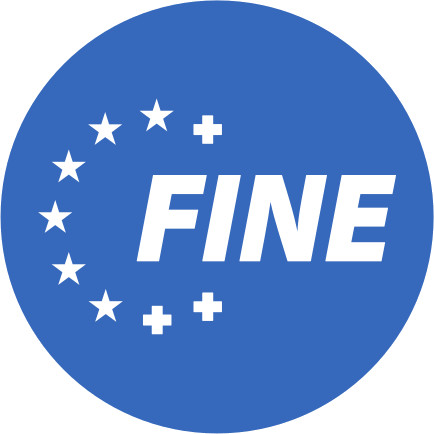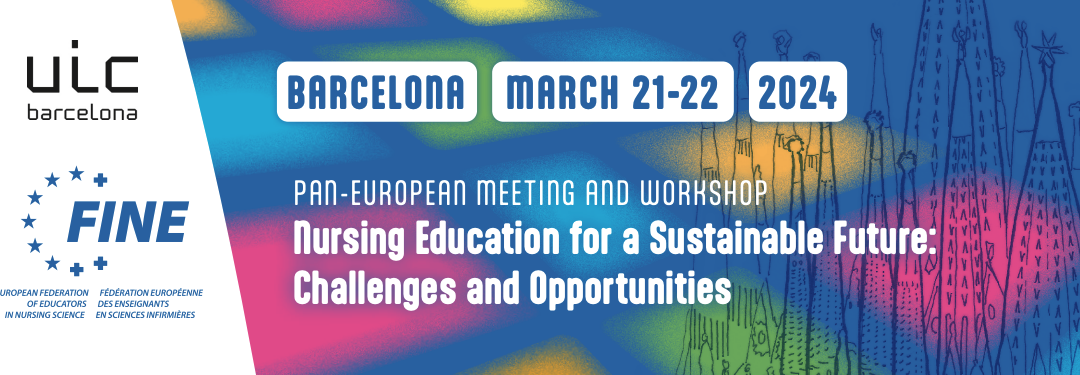CALL FOR ABSTRACTS
The next FINE Conference seeks to create a space for all stakeholders of nursing education, including students, clinicians and educators, to share, discuss and debate planning the future of nursing education in Europe from a sustainability perspective.
The conference focuses on the contribution of nursing education and educators to the development of a future-proofed nursing workforce, learning from the past, and embracing the possibilities of the future.
This call for abstracts seeks:
- Paper presentations (15 minutes to present followed by 5 minutes for questions)
- Posters (5-minute slot to answer questions)
- Other types of communication (for example, art and craft illustrations, drama, dance, poetry music and song)
Each abstract must be:
- submitted online before 30th October 2023;
- a maximum of 400 words (excluding references), as well as a title and 3-5 keywords;
- original in content and presentation focus, respectful of copyright regulations;
- produced in English or French;
- emphasising the concept of sustainability, that is, “meeting the needs of the present without compromising the ability of future generations to meet their own needs” (United Nations Brundtland Commission, 1987);
- relevant to one of the conference themes.
The abstracts selected for conference presentation will be published in the conference proceedings with an ISBN number. The possibility to present selected abstracts is dependent on at least one author being registered for the conference.
Acceptance or rejection of abstracts will be notified, by email from the Scientific Committee of the Conference to the contact person, by 30th November 2023.
| Innovations in Nursing education | Abstracts may include, but are not limited to, emerging needs, trends, predictions, and expectations in the nursing field, for example, the increasing demand for advanced practice nurses, the integration of technology and AI, and the evolving role of the nurse in practice and policy development. |
| Fostering Clinical Excellence
|
Abstracts may address, but are not limited to, the elements of excellence across nurses’ practice as clinicians, for example, clinical reasoning, critical thinking development, clinical skills proficiency, practice in clinical settings vs simulation, and competency-based continuous professional development and assessment. |
| Diversity and Inclusion in Nursing education
|
Abstracts may evaluate prevailing ways of attracting and retaining a diverse workforce or may explore new and futuristic strategies to overcome systemic barriers for effective and efficient inclusion. Other aspects of diversity and inclusion may also be addressed. |
| Future of Nurse Educator Education | Abstracts related to this theme may include reflections on developments of nurse educator education to-date, in view of studies on how nursing education and nurse educators may enable the development of a future proof workforce through innovative initiatives or retrospective actions. |










